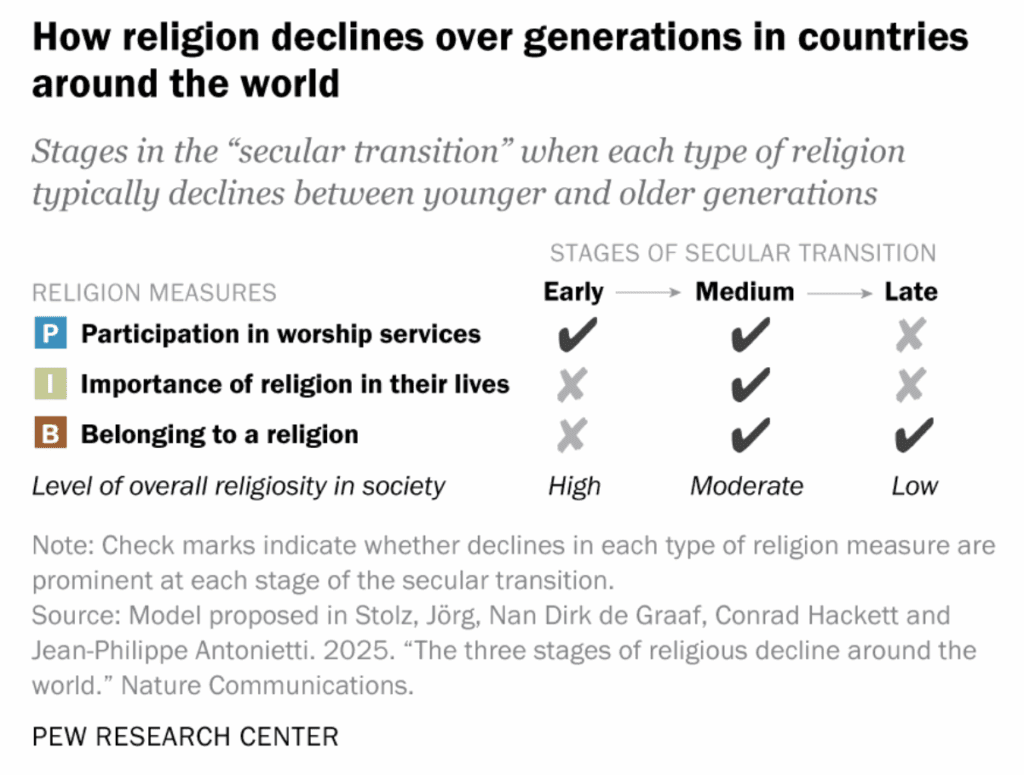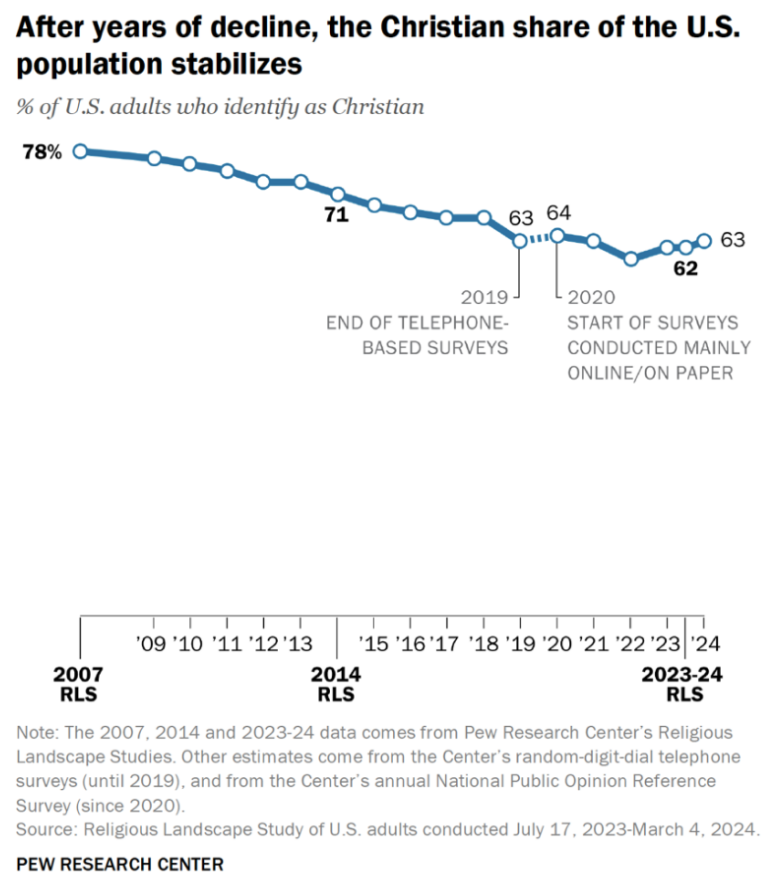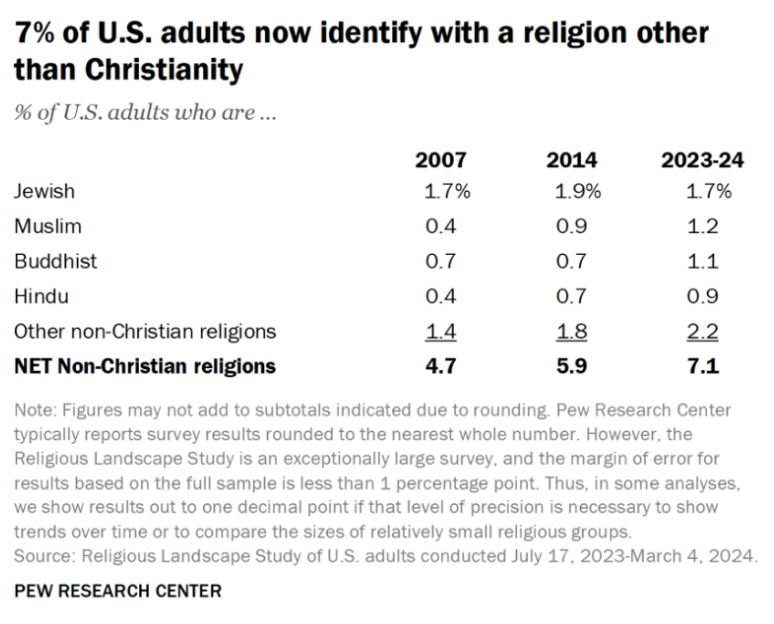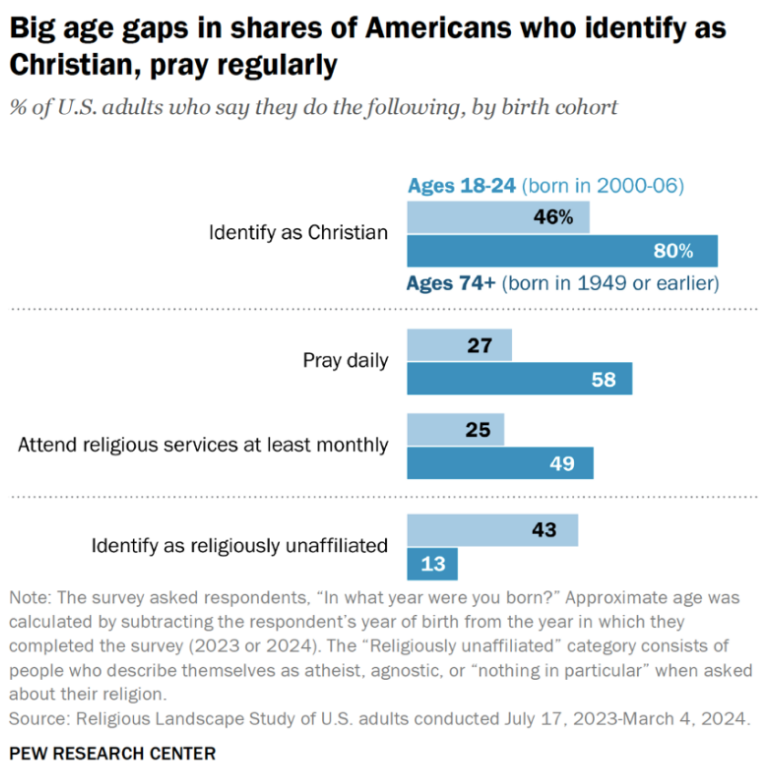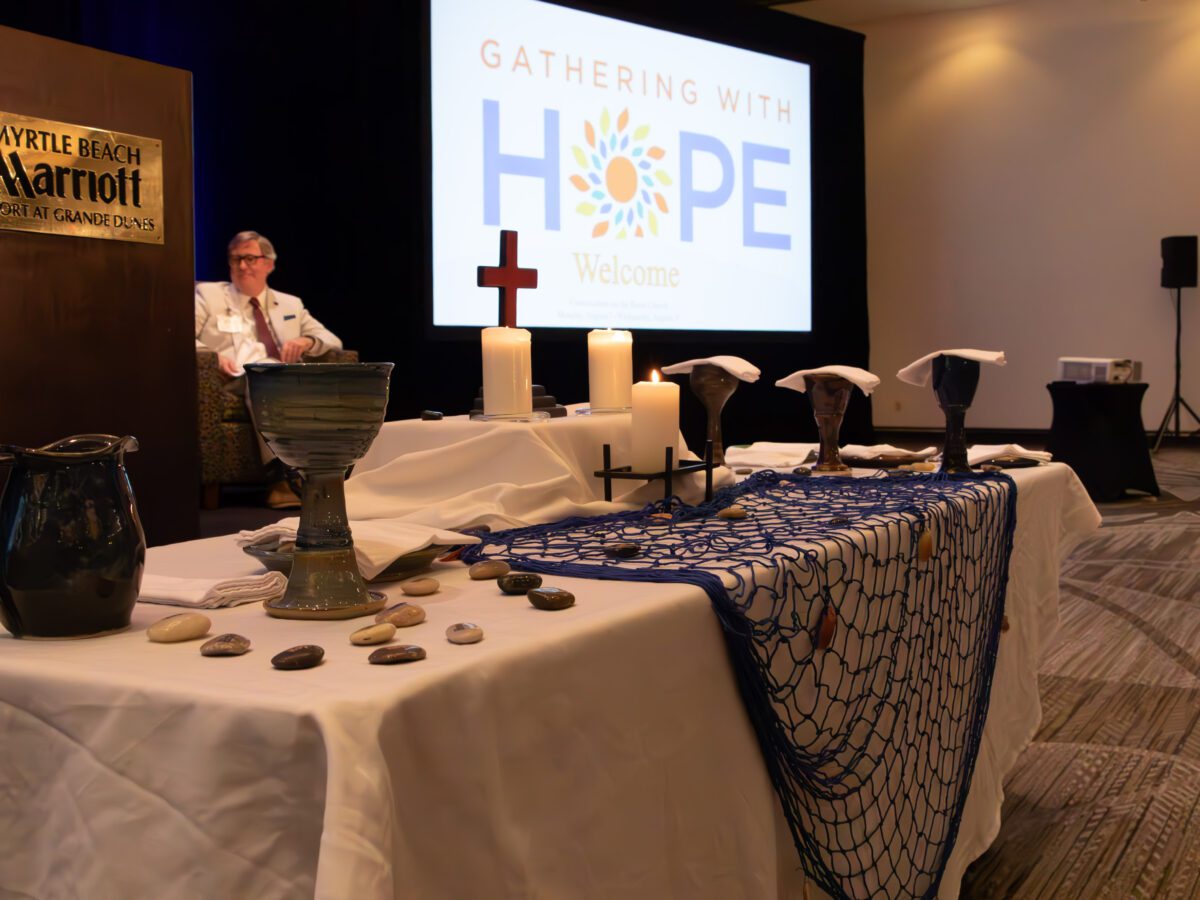
North Carolina is the seventh most religious state in the country, according to a data visualization tool released by the Pew Research Center last month.
Each state’s religious profile, created from Pew’s 2023-24 Religious Landscape Study, includes four factors: importance of religion, religious attendance, frequency of prayer, and belief in God. Here’s a look at how North Carolinians responded to the survey:
- 51% said religion is very important in their lives,
- 39% say they attend religious services at least monthly,
- 54% say they pray daily, and
- 65% say they believe in God or a universal spirit with “absolute certainty.”
![]() Sign up for the EdWeekly, a Friday roundup of the most important education news of the week.
Sign up for the EdWeekly, a Friday roundup of the most important education news of the week.
The 2023-24 landscape study was conducted in English and Spanish from July 17, 2023, to March 4, 2024, among a nationally representative sample of nearly 37,000 respondents. It compares all 50 states and Washington, D.C.
According to the results, 41% of adults in North Carolina are “highly religious.” Across the country, states ranged from 13% in Vermont to 50% in Mississippi.
Overall, the landscape study found that religious identity is fading in many countries.
From 2010 to 2020, the share of the population that was affiliated with any religion dropped at least 5 percentage points in 35 countries, according to a recent Pew Research Center study. It dropped considerably more in countries such as Australia (17 points), Chile (17), Uruguay (16) and the United States (13).
Sept. 2 Pew article
In the article, Pew cited a new academic paper by a group of international scholars, which proposes that drops in religious affiliation “happen in the medium and late stages of a ‘secular transition’ process. This transition unfolds slowly, as generations are replaced by less religious ones.”
The authors propose that religion often declines between generations in three steps:
- People participate in worship services less often.
- The importance of religion declines in their personal lives.
- Belonging to religion becomes less common.
According to the paper, many African counties are currently in the early stage of “secular transition,” while the United States and many other counties in the Americas and Asia are in the medium stage. Many counties in Europe have reached the late stage, the researchers say, as “attendance at religious services and self-assessments of the importance of religion are low among people of all ages.”
“This secular transition isn’t completely uniform, and it may not be inevitable everywhere,” the Pew article says.
Specifically, the article notes some exceptions to the model, including Eastern European post-communist countries with Orthodox or Muslim majorities, and Israel, the world’s only Jewish-majority country.
And in the United States, for Christians specifically, the landscape survey found that after many years of steady decline, the share of Americans who identify as Christians shows signs of leveling off, at least temporarily. (Importantly, identifying with a religion is different than saying that religion is very important to your life.)
The center’s first religious landscape study (RLS), conducted in 2007, found that 78% of United States adults identified as Christians.
“The latest RLS, fielded over seven months in 2023-24, finds that 62% of U.S. adults identify as Christians. That is a decline of 9 percentage points since 2014 and a 16-point drop since 2007,” a February Pew article says. “But for the last five years, between 2019 and 2024, the Christian share of the adult population has been relatively stable, hovering between 60% and 64%.”
Approximately 40% of United States adults are Protestants, the data found. Another 19% are Catholic, and people who identify with other Christian groups (Greek and Russian Orthodox churches, the Church of Jesus Christ of Latter-day Saints, Jehovah’s Witnesses, etc.) total about 3%.
As the percentage of United States adults who are Christian has leveled off, the study found the share of Americans who identify with a religion other than Christianity has been trending upward.
Approximately 7% of United States adults now identify with a religion other than Christianity, the study found.
At the same time, religiously unaffiliated adults (who identify as atheists, agnostics, or as “nothing in particular”) make up 29% of the country’s population.
The size of the religiously unaffiliated population, which we sometimes call religious ‘nones,’ has plateaued in recent years after a long period of sustained growth.
February Pew article
Interestingly, many “nones” across the world still hold spiritual beliefs, the Pew survey found, but at a lower rate than people who identify with a religion.
In the United States, for example:
- 86% of religiously unaffiliated adults believe people have a soul or spirit in addition to their physical body;
- 83% believe in God or a universal spirit;
- 79% believe there is something spiritual beyond the natural world, even if we can’t see it; and
- 70% believe in an afterlife (heaven, hell, or both).
“The study shows that many of the country’s most spiritual states, as well as many of its most religious ones, are in the South,” a September Pew article says, noting that spirituality can mean many different things to different people.
In North Carolina, 90% of adults believe people have a soul or spirit, 83% believe in something spiritual beyond the natural world, and 74% believe in an afterlife. However, only 37% of North Carolina adults consider themselves spiritual.
The February Pew article found that despite signs of “recent stabilization and abiding spirituality,” we may see further declines in the American religious landscape in the future.
“Namely, younger Americans remain far less religious than older adults,” the article says.
According to the data, the youngest adults in the survey were less likely to identify as Christian, pray daily, and say they attend religious services at least monthly.
At the same time, the youngest adults are also much more likely to be religiously unaffiliated.
“Also, younger Americans are less likely than older adults to say they were raised in religious households. And, compared with older adults, fewer young people who were raised in religious households have remained religious after reaching adulthood,” the article says.
Recommended reading




